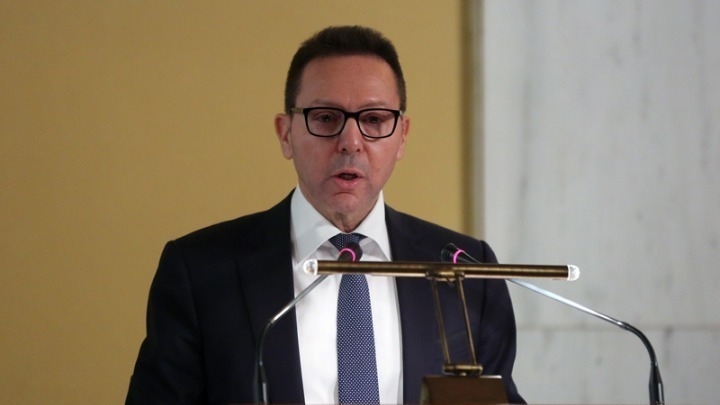He called on banks to take additional provisions to cover the new wave of rising red loans.
He stressed the need for the emergency fiscal and monetary measures
currently being implemented in the context of dealing with the effects
of the pandemic, to be phased out once the health situation normalizes.
Responding to questions from representatives of institutions involved in
the online dialogue under the ECB's initiative to review the
Eurosystem's monetary policy strategy, the BoG governor said that both
monetary policy and the functioning of the euro area is much more
flexible after the end of the pandemic.
As he has already said, at the Eurogroup level, discussions are underway
to replace the existing Stability Pact, which will be much more
flexible than the existing one. He stressed that in order to avoid the
so-called cliff effect after the end of the pandemic, the withdrawal of
the measures applied today in both the fiscal and monetary fields should
be gradual.
Particularly for the banks' risk of over-indebtedness recurrence, Mr.
Stournaras said that the credit institutions in the country have already
made products in order to "reintegrate" the borrowers who were subject to a temporary suspension of their installment payment.
But he called on banks to take additional precautions, given that the
previous crisis has taught us that timely and adequate coverage of bad
loans was more effective in tackling the problem.
Regarding the public debt, he claimed that the particularly low yields
of Greek bonds, which, as he said, are mainly a result of their
inclusion in the pandemic program (PEPP) implemented by the ECB, improve
its viability.
He predicted that due to the extraordinary fiscal measures implemented
by the government, it is inevitable that the public debt will be
increased. However, as he said, a critical parameter is the growth rate
of the economy: as long as it exceeds the nominal lending rates of the
State, the situation will be controlled. In any case, the idea of debt
relief that the ECB has in its portfolio is rejected.
G. Stournaras: € 5.5 billion of investments financed by the Recovery Fund


G. Stournaras: € 5.5 billion of investments financed by the Recovery Fund
Investments corresponding to 3.3% (approximately 5.5 billion euros) of GDP will be financed this year by the advances of the Recovery Fund, predicted the Governor of the Bank of Greece, Giannis Stournaras.
Share
Copy Link
RE+D magazine
10.02.2021














